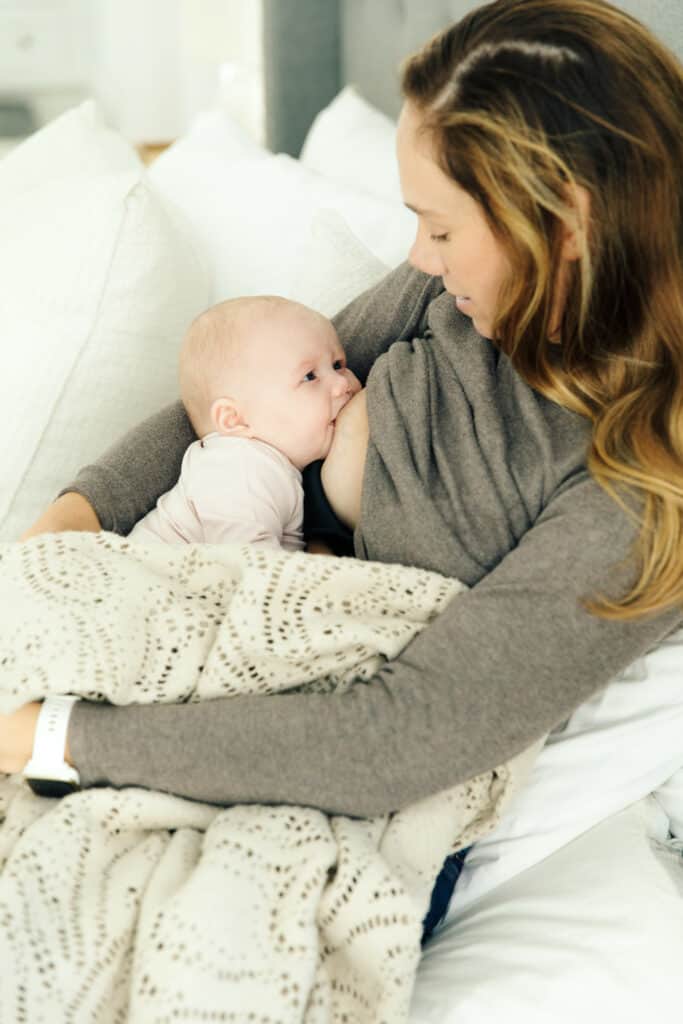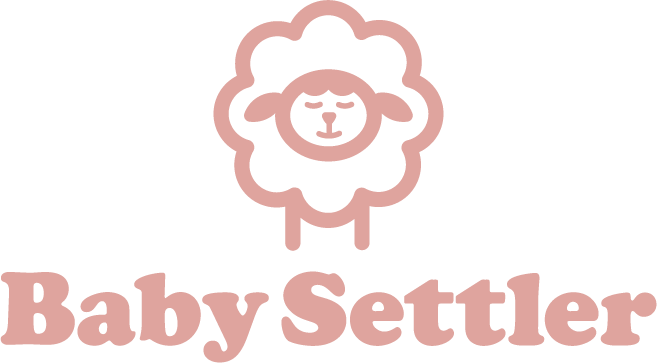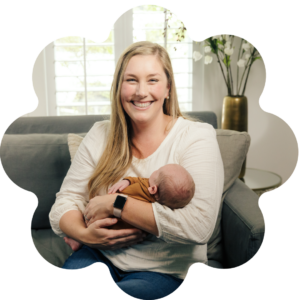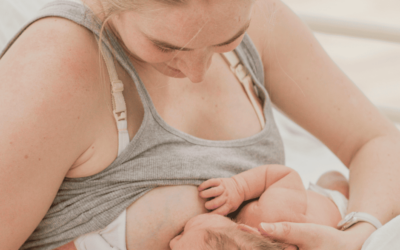
Breastfeeding your baby can come with a lot of anxiety. You may be asking yourself, “Are they eating enough?”, “Did they nurse for long enough?”, “When should I switch them to nurse at the other breast?” Many of these questions can be answered by your baby! You just have to know how to spot a few of their cues and pay attention to how they pick up weight and grow.
How Long Should You Breastfeed A Newborn?
The length of time your baby should nurse at each feeding varies! There are a few different factors to consider, including the age of your baby, their weight, and even their hunger level (yes, different babies can have different levels of hunger). Newborns generally breastfeed for 10 to 20 minutes on each breast, however, they could feed for shorter bursts and feed more often (this is typical for a newborn). “Cluster feeding is when a baby suddenly starts eating much more frequently – in clusters – for a period of time. It usually lasts a couple of hours at a time and differs from your baby’s usual eating behavior,” explains Healthline.
How Long Should You Breastfeed An Older Baby?
Older babies breastfeed for shorter periods of time compared to a newborn; this is because as they’ve grown, they’ve become more efficient at breastfeeding. “Older babies may take five to 10 minutes, or less, on each side,” tells Baby Center. Short nursing sessions are nothing to worry about – some babies are just snackers! There is no harm in this unless it’s keeping your baby from sleeping for longer stretches. The 4-6 Months Made Simple course will help you create a routine for naps, wake windows, and feedings as well as guide you on how to encourage longer sleep.
How Do You Know When It’s Time To Switch Breasts?
Switching breasts while breastfeeding is important to make sure that your baby is getting enough milk and to keep up with your milk supply. When your little one gets to the point where they’re not actively sucking or swallowing, you can move them to your other breast. You can also tell when it’s time to switch as your breast feels empty. If your baby falls asleep while nursing and you haven’t switched yet, it’s okay. Move them to the other breast to make sure they’re getting enough milk. If they don’t drain the breast, you can start with that breast during the next nursing session, or pump.
How Do You Know Your Baby Is Getting Enough Calories?
Weight gain is the best sign that your baby is feeding enough and getting sufficient calories. “In the first few days of life, it is normal for a breastfed baby to lose up to 10% of his or her body weight. But, after the first few days, a consistent weight gain is the best way to confirm that your baby is getting enough nutrition,” says Very Well Family.
Other than weight gain, other signs that your baby is getting enough breast milk include:
- Wet diapers – during the first month of life, newborns should have at least six wet diapers a day.
- Your baby is content after breastfeeding and sleeps in between nursing sessions.

What Are The Hunger Cues To Watch Out For?
It’s important to pay attention to your baby’s hunger cues and let them nurse for as long as they need to feel full. Signs that your baby is hungry and wants to nurse include:
- Moving their fists moving to their mouth.
- Head moving from side to side (looking for the breast).
- Sucking on their fingers.
- Lip-smacking.
- Opening and closing mouth.
The above are early hunger cues. Crying and fussing are considered late hunger cues, and it may be more difficult to get your baby to settle and feed effectively.
How Do You Know When Your Baby Is Full?
Just like your baby gives you cues to let you know they’re hungry, they also let you know when they’re full. When your baby is satisfied and has had enough milk, they’ll close their mouth, turn their head away from your breast, and you’ll feel that their body is relaxed.
Another sign that your baby is getting enough milk is that your breasts feel softer and empty after feeding. If your baby stops feeding before your breasts are drained and you want to keep up with milk production, or increase milk production, pump for a few minutes and store the milk.
What Impacts Your Baby’s Hunger Level?
There are a variety of things that can impact how hungry your baby is:
Health
If your baby is ill, they might not be as hungry. However, it’s important to still try and breastfeed them. Medela explains, “Breastfeeding a sick baby gives her a great chance of a speedy recovery, as well as helping to comfort her. Your breast milk contains antibodies, white blood cells, stem cells, and protective enzymes that fight infections and may help with healing.”
Alertness
Not all breastfeeding sessions are the same. A sleepy baby that wakes up in the middle of the night to breastfeed may not feed as well as they would during the day.
Developmental Leaps
Milestones can impact breastfeeding. When your baby makes a developmental leap, they may want to breastfeed more. During teething, you may find it difficult to breastfeed your little one because they’re so uncomfortable. Before breastfeeding, give your baby a cold teething ring (we like this teether) or a frozen wet washcloth for them to chew on. This will soothe some of their discomfort and allow them to latch more effectively.
If you’re concerned about your baby’s nursing habits, you don’t have to struggle by yourself. It’s always a good idea to consult with a lactation consultant for guidance and support.
Breastfeeding your baby comes with a ton of questions and worries. Being aware of your baby’s cues and noting the signs of successful breastfeeding can relieve some anxiety and help you enjoy this special time with your little one.




